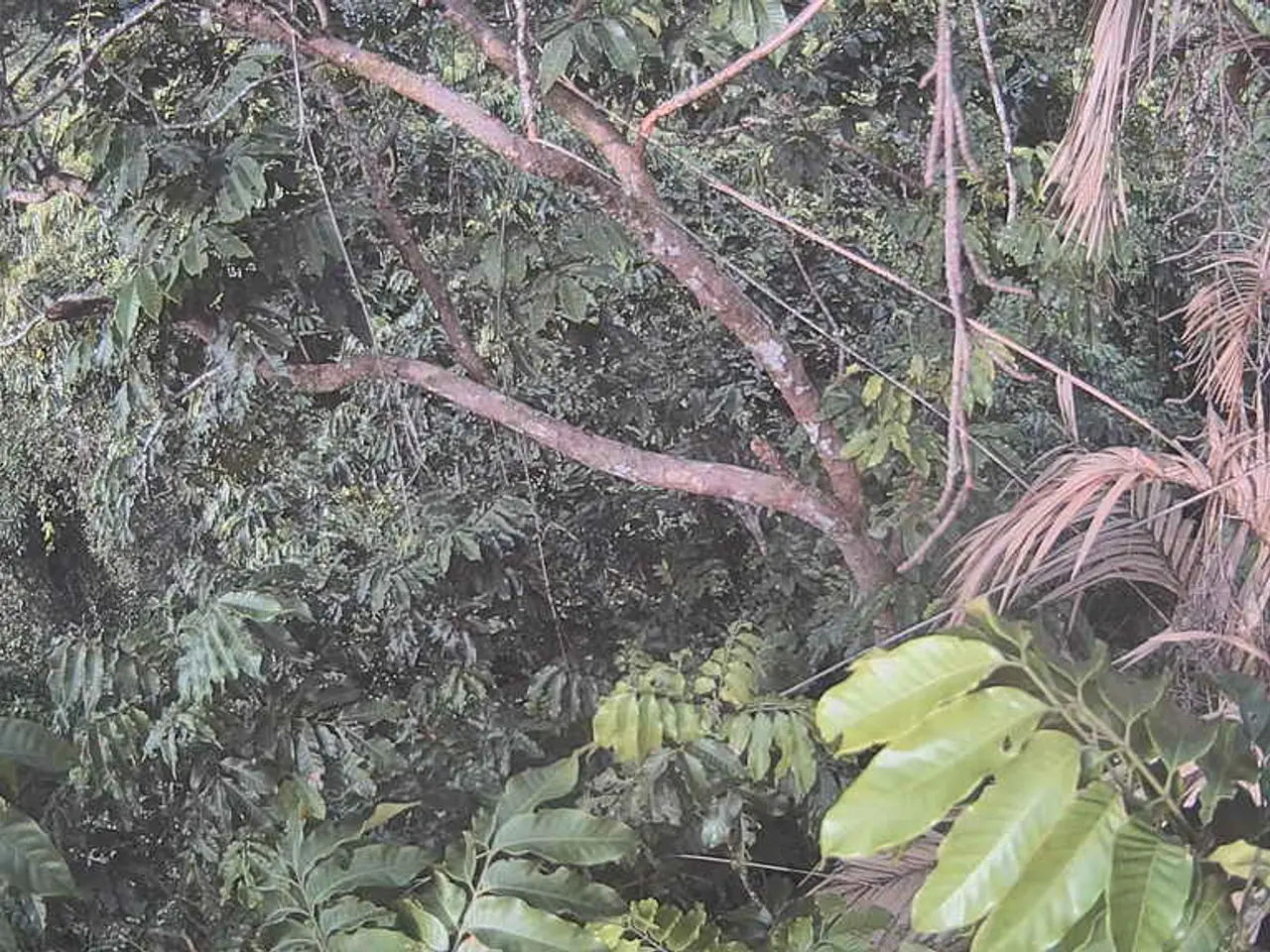Catastrophic Impact of Palm Oil Industry
In the heart of lower Manhattan, C16 Biosciences, a pioneering company in producing synthetic palm oil, has recently moved into a new lab space supported by NYU's Langone Medical Center. Founded by Ticku and McNamara in a Cambridge tech incubator lab, the team at C16 Biosciences is refining the process of producing synthetic palm oil using yeast as the host organism.
The company's commitment to beating palm oil's price is evident, with Ticku stating that the biggest palm oil-consuming corporations may not be willing to pay much, or any, of a cost premium for a sustainable oil. The process remains a closely guarded secret, but Ticku has mentioned they took cues from the algae-based biofuel industry.
Palm oil, a top driver of deforestation in Southeast Asia, threatens nearly 200 vulnerable or endangered species, including orangutans, gibbons, and tigers. Globally, palm oil plantations cover an area around half the size of France, and the world consumed nearly 70 million metric tons of it in 2018, more than any other vegetable oil. Yet, palm oil can only be grown at near-equatorial latitudes, feeding demand for processed foods, cosmetics, and biofuels in the Global North.
An emerging industry aims to use oil-producing organisms like algae and yeast to bio-manufacture oils that can outcompete palm oil on sustainability, flavor, function, and cost. One such startup is Äio, an Estonian company that has developed fat products derived from specialized yeast fermenting wood and agricultural byproducts to create palm oil substitutes, particularly for cosmetics and food applications.
These advances show high potential to reduce palm oil's destructive environmental impact, including deforestation and habitat loss, by providing scalable, renewable fat sources that can replace palm oil in products without requiring additional agricultural land. The biochemical performance of lab-made fats is progressing to meet or surpass natural palm oil qualities, thus overcoming previous cost and performance hurdles.
Beyond environmental benefits, lab-engineered alternatives can address social inequality issues linked to palm oil, such as the exploitation and displacement of Indigenous and traditional communities in palm-producing regions. By reducing dependence on large-scale palm plantations, fermented fats could diminish social conflicts and support more ethical supply chains.
While these technologies are mainly advancing in cosmetics and personal care so far, scaling production for food and other consumer goods is underway, with increasing investment and research efforts demonstrating commercial viability. However, broad adoption depends on continued improvements in cost efficiency, sensory compatibility, and regulatory acceptance.
Despite commitments to sustainable palm oil sourcing from many companies, many still do business with "dirty" producers. C16 Biosciences plans to have a commercial product available by summer 2020, first in cosmetics and hopefully later in food. The company plans to replace sugar, the traditional food for yeast, with food waste sourced from restaurants, breweries, and other processing facilities in the New York area.
The haze in Southeast Asia in June 2013 was caused by wildfires on the Indonesian islands of Sumatra and Borneo, largely attributed to the clearing of rainforest for palm oil tree plantations. The greenhouse gas emissions from palm oil-related deforestation and fires in Indonesia alone have at times exceeded those of the entire US economy.
With continued progress and investment in lab-engineered palm oil alternatives, a sustainable future free from the environmental degradation and social harms caused by palm oil may soon be within reach.
- C16 Biosciences, a nonprofit company focused on producing synthetic palm oil, has recently moved into a new lab space supported by NYU's Langone Medical Center.
- The team at C16 Biosciences is refining the process of producing synthetic palm oil using yeast as the host organism, taking cues from the algae-based biofuel industry.
- Palm oil, a top driver of deforestation in Southeast Asia, threatens nearly 200 vulnerable or endangered species, including orangutans, gibbons, and tigers.
- An emerging industry aims to use oil-producing organisms like algae and yeast to bio-manufacture oils that can outcompete palm oil on sustainability, flavor, function, and cost.
- One such startup is Äio, an Estonian company that has developed fat products derived from specialized yeast fermenting wood and agricultural byproducts to create palm oil substitutes.
- These advances show high potential to reduce palm oil's destructive environmental impact, including deforestation and habitat loss, by providing scalable, renewable fat sources that can replace palm oil in products without requiring additional agricultural land.
- Scaling production for food and other consumer goods is underway, with increasing investment and research efforts demonstrating commercial viability.
- Despite commitments to sustainable palm oil sourcing from many companies, many still do business with "dirty" producers, and companies like C16 Biosciences plan to have a commercial product available, first in cosmetics and hopefully later in food, to address these issues.



